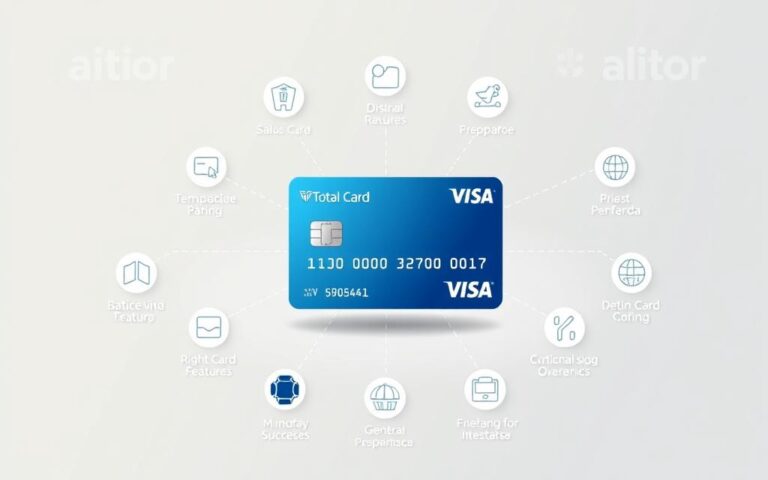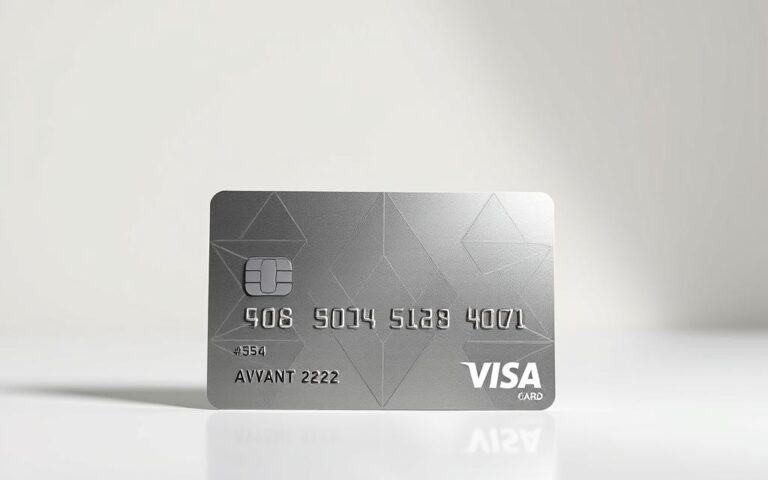Advertisement
Did you know big banks might charge you monthly fees? These can range from $4 to $25. Such hidden fees can quickly eat into your savings. Being alert about these fees is key to saving and cutting down on unnecessary bank charges.
We will look at the usual hidden banking fees in this section. These include ATM fees, overdraft fees, and high transaction costs. Knowing these fees lets you choose wisely and save money. By staying aware, you can dodge these costs and keep more of your money.
Understanding Common Banking Fees
Banking fees can slowly drain your money. It’s smart to know about these costs. This way, you can make better choices and save cash. Here are the fees you’ll most likely run into.
Monthly Maintenance Fees
The cost for Monthly Maintenance Fees varies between $5 and $25. Banks may not charge you if you meet certain conditions. These might include a minimum balance or having a direct deposit set up. By knowing the rules, you can avoid these fees every month.
ATM Fees
Using ATMs outside your bank’s network triggers ATM Fees. You might pay around $2.50 to your bank and $4.77 to the ATM owner. To dodge these costs, use ATMs from your bank. Also, taking out more cash less often can help.
Overdraft Fees
Overdraft Fees hit when your balance goes negative. Some banks charge up to $35 for this. Yet, Bank of America now charges less—only $10. They don’t charge for overdraft protection now. Using overdraft protection and keeping track of your balance can keep costs down.
How to Identify Hidden Banking Fees
Many people don’t notice extra charges that add up in their bank accounts. Knowing how to spot hidden fees is key to keeping your money safe. Taking steps to find these costs can stop unexpected charges on your bank statement.
Reading Your Bank Statement
Checking your bank statement carefully is vital. It lets you see charges you didn’t expect. Be on the lookout for fees for keeping your account, using ATMs, and other services.
Overdraft fees can be especially pricey, going from $25 to $35 each time. By regularly looking at your statements, you can catch these fees early. Then, you can talk to your bank about them.
Asking Direct Questions
When you’re unsure, asking your bank direct questions can help. You should ask about any possible fees for sending money, closing your account early, and monthly costs. Getting clear answers helps you know all the costs of your account and prevents surprises.
Researching Bank Policies
Knowing your bank’s rules can save you from unwanted fees. Banks charge different fees, like inactivity fees between $5 to $20 a month if you don’t use your account. Spend some time learning about what your bank offers. This helps you make smart choices and avoid extra charges.
The Impact of Banking Fees on Your Finances
Bank fees can really hurt your money health. They can surprise you and mess up your budget and savings plans. It’s very important to know how these fees can affect you.
Budgeting Challenges
Fees that you didn’t see coming can mess up your money plans. Things like monthly fees, ATM costs, and penalties for overdrafts can add up. This can make your budget go wrong.
If you think you have a certain amount of money, but then find out you have less, your whole budget can be thrown off. Knowing about these fees is key to keeping your budget right.
Long-Term Savings Losses
Bank fees can also hurt your savings over time. For example, monthly fees of $5 to $35 can make your long-term savings shrink. If you saved that money instead, it could grow a lot.
Being aware of these fees is very important for keeping your savings healthy.

Types of Fees to Watch For
Understanding different banking fees is key to saving money. Look out for fees like wire transfers, foreign transactions, and account inactivity. Knowing about these fees helps you choose wisely and save.
Wire Transfer Fees
Wire transfer fees matter a lot when you send money, either in the US or to other countries. These charges range between $16 and $35. It varies by bank and transfer type. If you send money often, finding a bank with low fees is smart. It means more savings for you.
Foreign Transaction Fees
Travelers often get surprised by foreign transaction fees. These are fees for buying things in another currency or while abroad. They usually take 2% to 3% of what you spend. Picking a bank or credit card without these fees helps if you travel a lot.
Inactivity Fees
Banks sometimes charge fees if you don’t use your account for a while. This is tough on accounts you don’t use often. To dodge these fees, just make a small deposit or buy something small now and then. It’s a simple action to keep your savings safe.
| Fee Type | Typical Amount | Best Strategy to Reduce |
|---|---|---|
| Wire Transfer Fees | $16 – $35 | Use banks with lower fees |
| Foreign Transaction Fees | 2% – 3% | Choose no-fee accounts |
| Account Inactivity Fees | Varies by bank | Keep accounts active |
Banks with Low or No Fees
Looking into low-fee banking options opens up many choices beyond traditional banks. Credit unions, online banks, and community banks offer great benefits. These benefits can help you save money and make banking easier and more affordable.
Credit Unions
Credit unions work as non-profit organizations. Because of this, they have lower fees and better interest rates than regular banks. They often don’t charge monthly fees, which makes them a great option. Make sure to look into what you need to join and what services they offer.
Online Banks
Online banks are great because they have lower costs. This means they can offer low or no fees. Banks like Capital One 360 Checking and Ally Bank have small or no fees, good interest rates, and easy online access. Some, like Discover Cashback Debit, give cash back on some purchases with your debit card, which adds more value.
Community Banks
Community banks are known for their personal touch and knowledge of local needs. They usually have lower fees than the big banks. They provide services and products that fit the financial environment of their community. You might find options that help you reach your financial goals easier.
| Bank Type | Typical Fees | Key Benefits |
|---|---|---|
| Credit Unions | Low to no monthly fees | Better interest rates, community-oriented service |
| Online Banks | No monthly maintenance fees | Cashback offers, high-interest yields |
| Community Banks | Lower fees than major banks | Personalized services, tailored products |
Negotiating Banking Fees
Talking with your bank can lead to saving money. You might get surprised by how many fees can be dropped just by asking. A good relationship with your bank helps in negotiating.
Learning how to talk about fees can help you manage them better.
Asking for Fee Waivers
Banks may lower fees, especially when times are tough. Overdraft fees, around $35, are often negotiated. Talking directly to your bank could help waive some fees.
Using online chat or messaging keeps a record of your talks. Being polite and calm helps with getting fees removed, no matter your account balance.
Building Your Relationship with Your Bank
A strong relationship with your bank helps with fees. Good communication might lead them to waive fees for you. Being a loyal customer helps avoid some common charges.
With many banking options available today, a good relationship with your bank is key. It helps you manage and talk down fees more effectively.

Creating a Fee-Free Banking Strategy
Building a no-fee banking plan improves your money health. Do this by choosing bank options that match your goals. Making smart choices lets you dodge extra fees and use tech to handle your money well.
Choosing the Right Account
It’s vital to pick accounts that cut or drop fees for your plan. Search for ones without monthly costs, minimum balance rules, or high charges for transactions. Think about these account types:
- No-frills checking accounts
- Online savings accounts with good interest rates
- Credit union accounts with usually smaller fees
Utilizing Digital Banking Tools
Digital tools offer smart ways to keep an eye on your cash. Lots of banking apps have alerts to track spending and prevent overdrafts. Look at these tools:
- Instant warnings for low account balances
- Notices for potential high transaction fees
- Ways to connect different accounts to lower fees
Using these options helps you stay ahead and avoid fees from not using your account, spending too much, and too many withdrawals. With overdraft fees at an average of $27.08 and account fees varying, a no-fee plan saves a lot over time.
Monitoring Your Banking Activity Regularly
Keeping an eye on your banking activities is key for financial well-being. By checking your accounts often, you can steer clear of surprising charges and possible scams. It’s smart to set up financial alerts and regularly look over your account statements.
Setting Up Alerts
Financial alerts make monitoring your banking easier. You can get alerts for low balance, big purchases, and incoming payments. These alerts keep you in the loop and allow quick action if something’s off. Let’s look at how alerts can help:
- Fast spotting of unknown charges.
- Avoiding overdraft fees with timely updates.
- Keeping an eye on money movement without always logging in.
Reviewing Account Statements
Checking your account statements often is crucial for catching surprise fees. Aim to go through them at least monthly. This lets you spot and report any wrong charges fast. Keep an eye out for:
- Transactions that don’t add up.
- Repeating charges you could stop.
- Any fees you could dodge by keeping a minimum balance.
Make checking your banking activities a habit. Whether it’s through setting alerts or going through statements, being proactive is great for your wallet. It helps you dodge fees you don’t need.
Understanding Your Rights as a Consumer
It’s crucial to know your consumer rights in the banking world. Many federal rules ensure you get fair treatment. They help you deal with charges and spot unauthorized fees.
Federal Regulations
Laws like the Fair Credit Reporting Act let you view your credit report. This helps fix any mistakes. The Dodd-Frank Act set new rules for banks after the 2008 crisis. These regulations make sure banks are upfront, especially about fees and how they handle your account.
Complaint Processes
If you face issues like high fees or strange transactions, it’s important to act. Start by talking to your bank’s customer service. If that doesn’t help, take your complaint to groups like the Consumer Financial Protection Bureau (CFPB). They watch over banks and protect your rights. Keeping records of your complaints helps if you need to push further.
| Regulation | Description | Consumer Right |
|---|---|---|
| Fair Credit Reporting Act | Regulates credit information collection | Access and contest inaccuracies in your credit report |
| Dodd-Frank Act | Regulates financial institutions post-2008 crisis | Protection from unfair banking practices |
| Truth in Lending Act | Requires clear disclosure of loan terms | Understand loan fees and interest rates |
| Gramm-Leach-Bliley Act | Mandates disclosure of consumer information handling | Right to know how personal info is used |
Knowing about these rules and how to complain is key. Your rights protect you from unfair treatment. They ensure you fully understand your bank’s operations.
Tips for Educating Yourself and Others
Learning about finance is an ongoing journey. It’s important to use resources available to get better. This includes understanding bank fees and how to manage your money.
There are many programs and tools online that can help. For example, YouTube has tutorials, and there are blogs about finance. There are also apps to help you budget. These tools help you make smart choices in the world of finance.
Resources for Financial Literacy
If you want to really understand finance, look into workshops or online classes. Look for ones offered by trusted organizations. The National Endowment for Financial Education and banks have great programs.
You can also learn from podcasts or by following finance experts on social media. They keep you in the loop on avoiding unnecessary bank fees.
Sharing Knowledge with Friends and Family
Talking about money with friends and family is a good way to learn more. Sharing what you know about bank fees helps everyone. It creates a group of people who know how to handle their money.
By talking about financial literacy, you understand it better. You also help others learn how to deal with bank fees or find better banking options. When we share what we know about money, it helps us all be smarter about finance.



